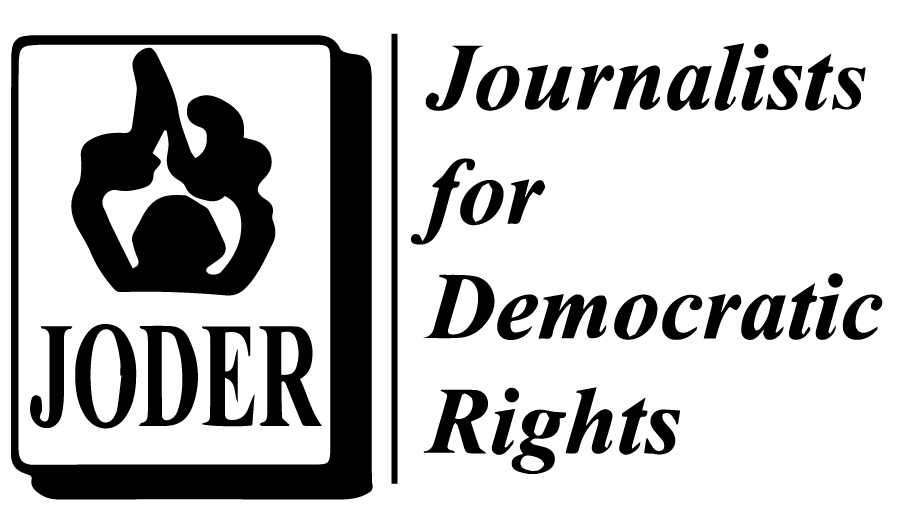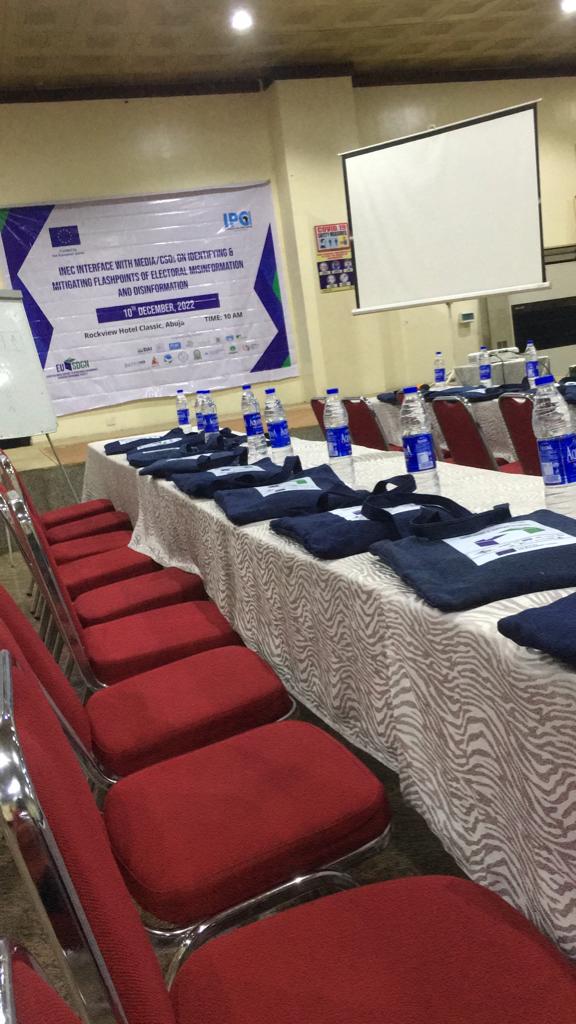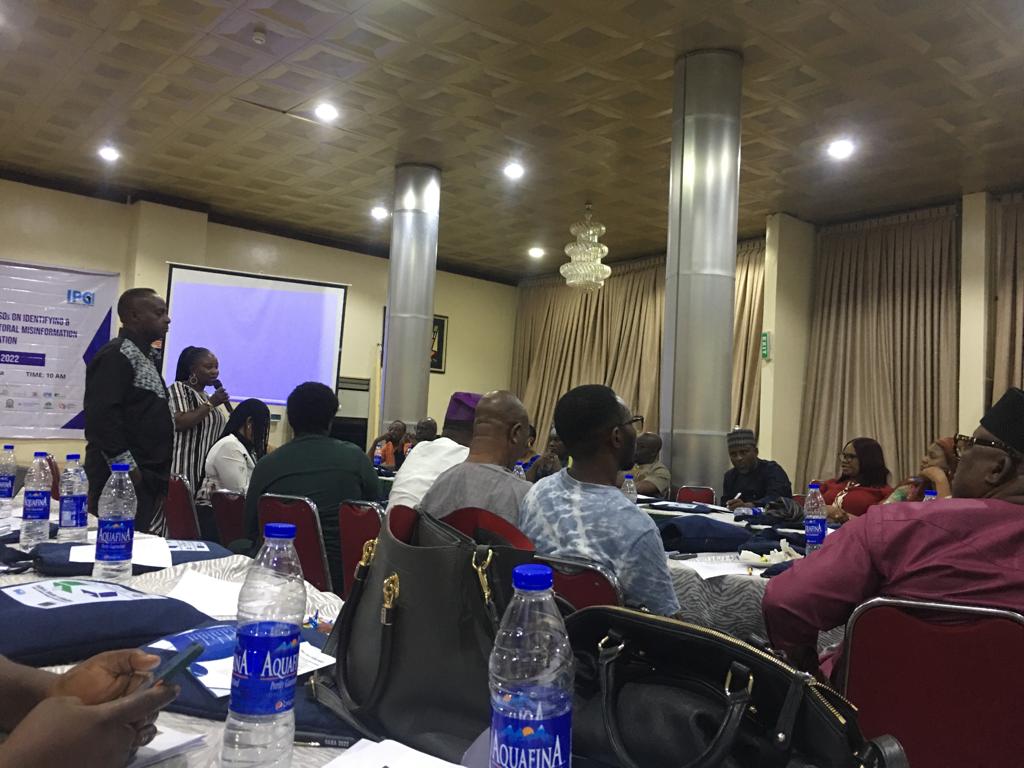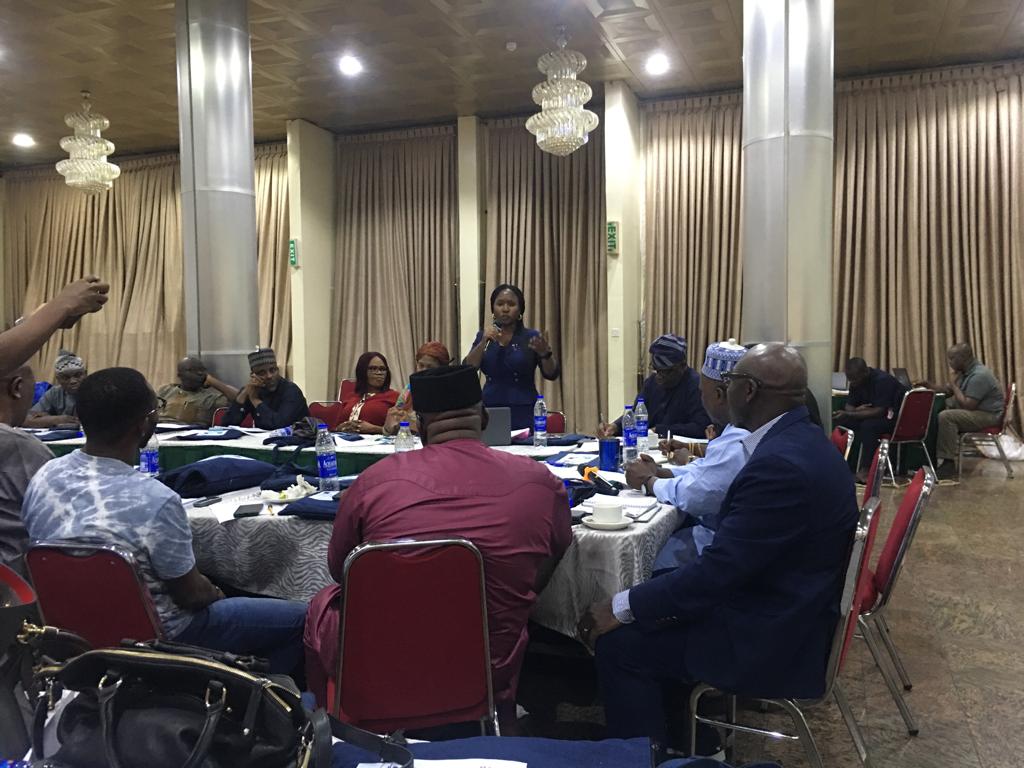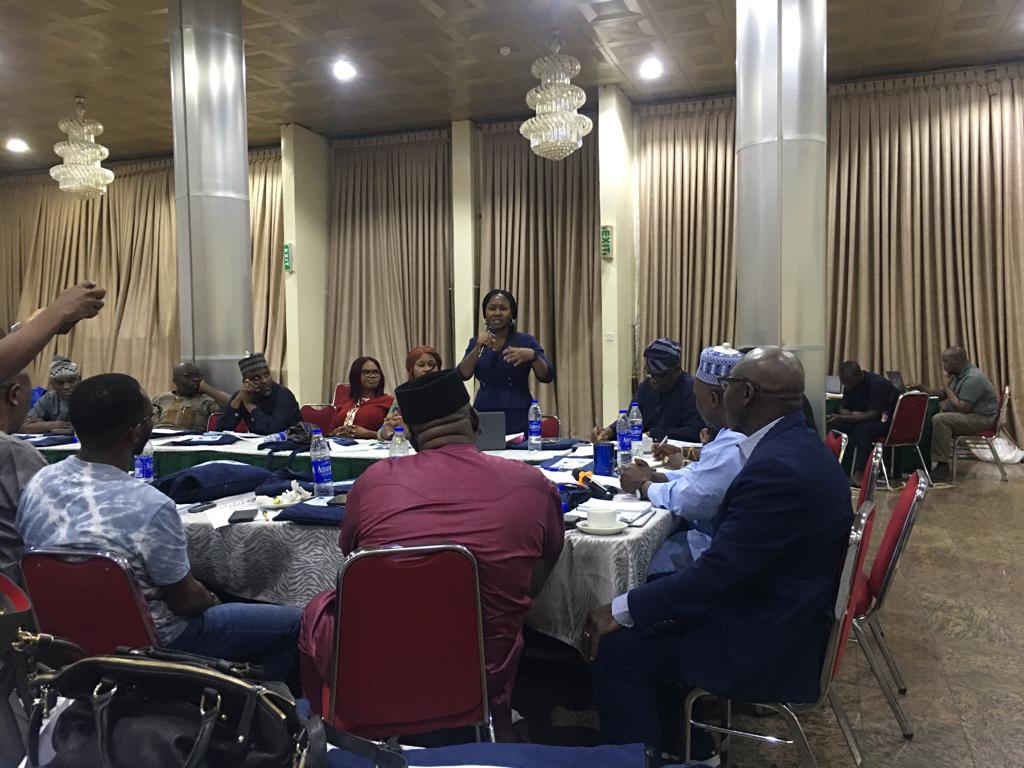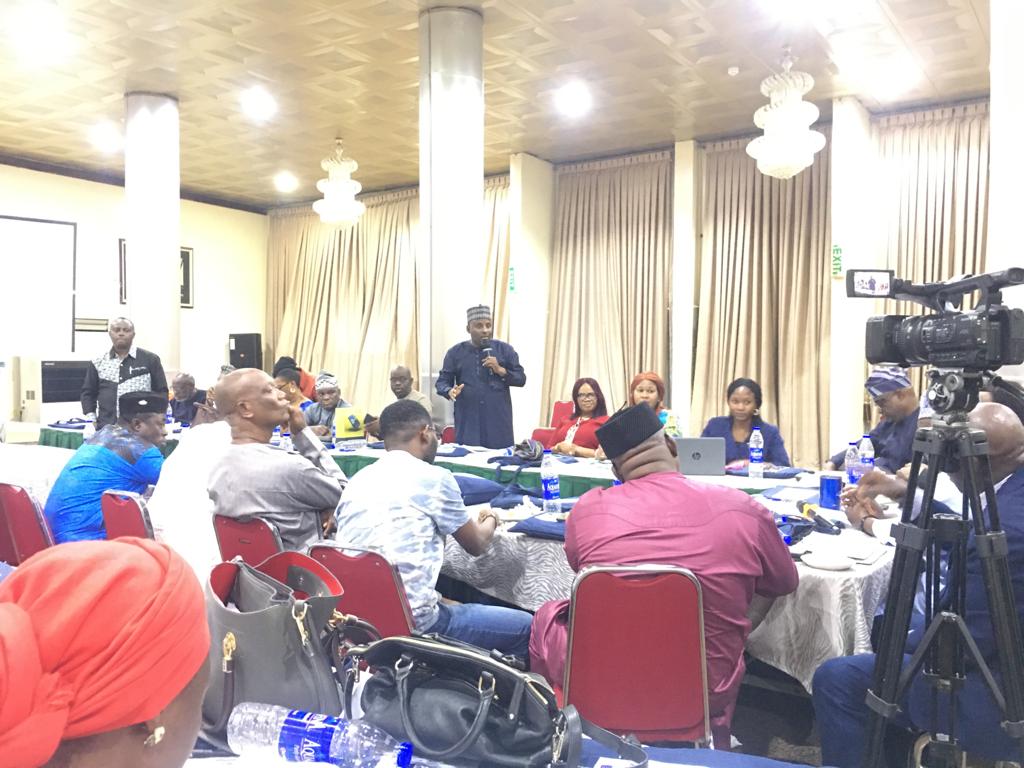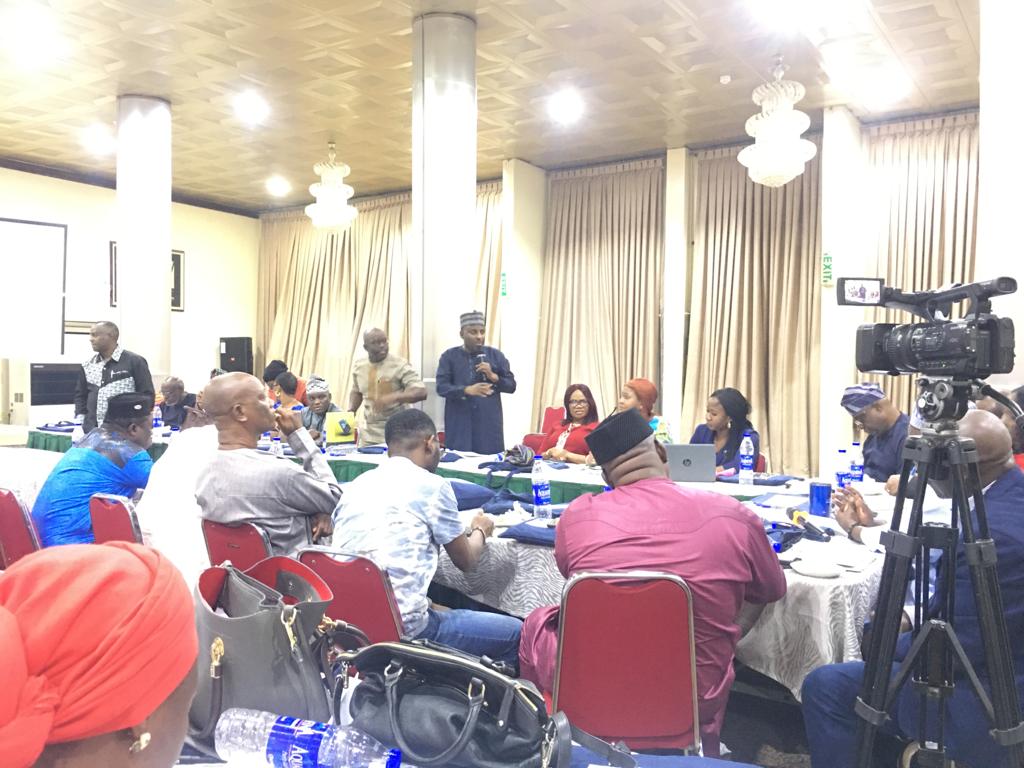COMMUNIQUÉ
ONE-DAY INTERFACE BY INDEPENDENT NATIONAL ELECTORAL COMMISION (INEC) AND MEDIA / CSOS ON IDENTIFYING AND MITIGATING FLASHPOINTS OF ELECTORAL MISINFORMATION AND DISINFORMATION FACILITATED BY THE INTERNATIONAL PRESS CENTRE (IPC) ON SATURDAY, DECEMBER 10, 2022 AT ROCKVIEW HOTEL, FCT, ABUJA.
Preamble
International Press Centre (IPC), the lead implementing partner of Component 4 (Support to Media) of the European Union Support to Democratic Governance in Nigeria – Phase 2 (EUSDGN II) project, convened a one-day Media/CSOs interface and dialogue with INEC aimed at identifying and mitigating flashpoints of electoral misinformation and disinformation, on Saturday December 10, 2022 at Rockview Hotel Classic, Abuja.
The interface was held against the background of growing public concerns over the cross-cutting issues of insecurity, particularly attacks on INEC facilities and the deployment of technology relating to preparedness of INEC for the 2023 elections, and the need for engagement with the Election Management Body on imperative of proactive disclosure of information. Such engagement with INEC, it is believed, would help to mitigate the spate of fake news as well as unfounded and unguarded opinionated expressions which lead to misinformation and disinformation and tend to rubbish efforts geared at delivering credible elections in 2023.
The interface, which attracted about 50 media and election stakeholders, was chaired by Prof. Jibrin Ibrahim, Chairman, Editorial Board of Premium Times and Senior Fellow of Centre for Democracy and Development (CDD). The sessions received expert inputs on fact-checking and information management from Senior Programme Manager, Centre for Democracy and Development (CDD), Mr. Austin Aigbe and Editor, Dubawa, Mr. Kemi Busari. The interface was attended by very senior officials of INEC including the Hon. National Commissioner for Information and Voter Education, Mr. Festus Okoye and the Director of Voter Education, Dr. Ayo Aluko. Media professionals at the program included reporters, editors, media managers, leadership of media professional bodies/associations as well as representatives of civil society organisations.
Presentations:
In his welcome address, the Executive Director of International Press Centre (IPC), Mr. Lanre Arogundade emphasised that the interface was being held “within the context of the need to make appropriate strategic response to the twin-menace so that the worst of information disorder do not envelope the electoral landscape”. Mr. Arogundade reiterated the need for the media to provide citizens with the appropriate information to enable them to make informed choices in the face of enormity of misinformation and disinformation and considering “the penchant for the politicians to tell blatant lies to score cheap political points”.
According to Mr. Arogundade, the interface was also aimed at consolidating series of initiatives under EU-SDGN project which include “fact-checking of claims by politicians under the on-going monitoring of media coverage of 2023 elections, the establishment of a fact-checking unit in IPC’s news portal and media resource – the Nigeria Democratic Report – (www.ndr.org.ng), the empowerment of citizens with the knowledge to detect fake news towards sanitising the electoral information space”.
Prof. Ibrahim in his opening speech reminded participants that democracy is based on the premise that opinions are formed by people to the extent that such opinions inform their choices and decisions which may have far-reaching implications for the society at large. He drew the attention of the participants to the potency of viewpoints of intermediaries like religious leaders as well as tribal and ethnic champions who may tend to exploit social media to create confusion through misinformation and disinformation. According to Prof. Ibrahim, there is an emerging global tendency to disbelieve facts and act on falsehoods. To that extent, he charged participants to admit the fact that the challenges ahead of the 2023 General Elections revolve around building capacities to recognise and de-emphasise misinformation and disinformation with the view to deescalating high-level conflicts which may pose threats to the successful conduct of the 2023 polls.
The Interface Highlights:
The tone for the interface was set by the Lead presentation by INEC’s Commissioner for Information and Voter Education, Mr. Festus Okoye, who made a very strong case on the need to build confidence and trust amongst stakeholders in the electoral process through collaborative engagements on information management. Mr. Okoye was particularly concerned about how the lack of adequate knowledge about the provisions of the Electoral Act 2022 is leading to wrong assumptions and therefore the spread of false information. Allaying fears about the preparedness of INEC for the 2023 general elections, Mr. Okoye assured that that INEC would abide with the provisions of the Electoral Act and therefore would make use of the BVAS during the elections.
In view of Mr. Okoye’s submission and notwithstanding the fact that the trend of misinformation and disinformation may be casting some doubts on the credibility of INEC as it continues to prepare for the 2023 General Election, the participants emphasised the need for the media and CSOs to focus on public enlightenment on relevant sections of the 1999 Constitution as amended as well as the extant Electoral Act, particularly as it relates to the powers vested on INEC to deploy technology. They also enjoined INEC to remain steadfast in its commitment to transmit election results in real-time as well as to deploy BVAS which has recorded a significant improvement in accreditation and authentication of voters. In light of the challenge of multiple registration and under-age voting, the interface highlighted the need to deepen further collaboration at the state level towards creating awareness on the position of INEC regarding the use of PVCs as the only means of identification on Election Day as well as ongoing steps geared towards cleaning up voters register to enhance the credible outcome of the polls.
Observations:
The participants also made the following key observations:
- Misinformation and disinformation pose threats to the electoral process and popular democratic participation.
- Journalists lack adequate capacity and resource to effectively deliver on their constitutional duty of defending democracy.
- Journalists are not being adequately sensitised about the need to be guided by the ethics of the profession and discharged of their duty for the public good.
- Traditional media are not prioritizing the need to reach rural areas to give voice to marginalised groups, especially women.
- INEC is not adequately engaging and empowering PROs at the State offices to enable them to relate effectively with journalists with the view to countering misinformation and disinformation.
Recommendations:
Arising from the discussions and the key observations, the participants recommended that:
- Media establishments and owners need to do more on training and enhancing media literacy in an ICT age; and deploying appropriate tools to detect and deflect misinformation and disinformation.
- INEC and other stakeholders should explore the infinite potential of our youths in ICT for them to use their skills in identifying as well as obliterating threats and impediments to the proper dissemination of credible and usable information.
- The media should employ effective methods and devices to fact-check as well as do live fact-checking during live electoral activities especially debates by Parties and Candidates.
- Despite obvious challenges, editors and gatekeepers must do more and be scrupulous in processing copies submitted by their reporters before publishing.
- Media must report accurately the mechanics of election administration to assure people of the fidelity of the processes and restore confidence.
- Media owners and editors should recognise that disinformation and misinformation are serious ethical infractions that should attract sanctions by the appropriate organs of media professional bodies such as NPAN, NGE, NUJ, BON and GOCOP etc.
- Media and CSOs should have regular collaborations with the sole aim of engendering credible elections.
- Media owners should ensure the safety of journalists covering elections across the country by providing needed incentives and by responding to distress promptly and appropriately.
- INEC should assist the media and CSOs by providing and disseminating toolkits on new electoral innovations as well as amended laws to enhance mass education of the electorate
Conclusion:
Participants expressed satisfaction with the outcome of the interface and offered to collaborate with INEC to counter misinformation and disinformation. Participants commended INEC for its unrelenting effort at proactively disclosing information and conducting credible elections in line with global standards. Participants strongly commended IPC for its commitment to deepening the process of credible election and for its unflagging commitment to upholding the constitutional responsibilities of the media as the conscience of democracy. Participants expressed gratitude to IPC’s partners under the aegis of the EU-SDGN for their commitment to enhancing the capacity of the media and civil society towards serving as catalysts of credible elections and the sustenance of popular democracy.
Signed
Mr. Lanre Arogundade
Executive Director
International Press Centre (IPC)
